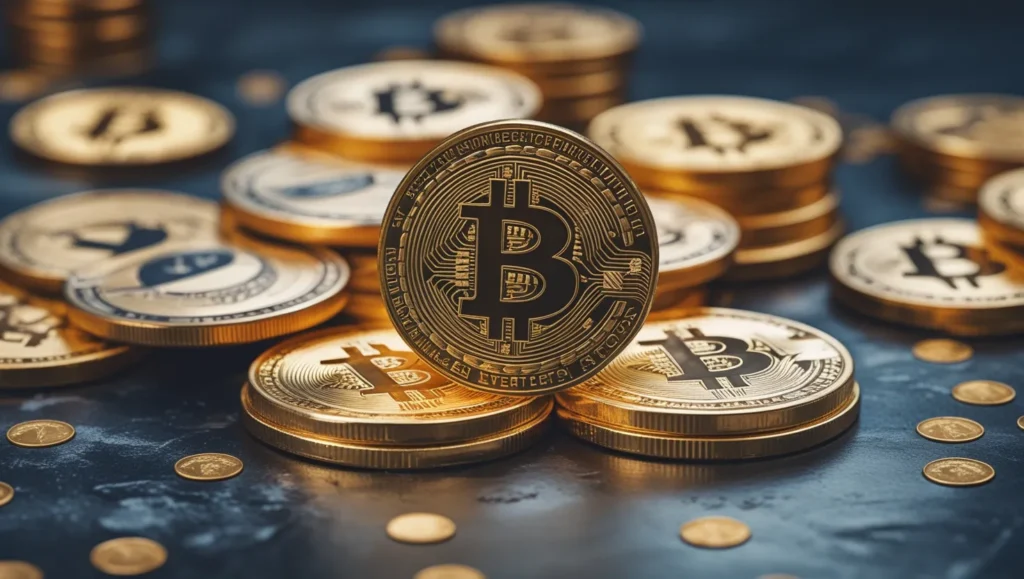The Future of Digital Investments
Cryptocurrencies have revolutionized the financial world, offering a decentralized and innovative alternative to traditional assets. However, The Future of Digital Investments their volatility and regulatory uncertainties have kept many institutional and retail investors at bay. Enter Crypto Exchange-Traded Funds (ETFs)—a game-changer in digital investments that blends the growth potential of cryptocurrencies with the security and convenience of traditional financial markets.
As crypto ETFs gain traction globally, investors are eyeing them as a less risky and more accessible way to invest in digital assets. But what exactly are crypto ETFs, and why are they considered the future of digital investments? Let’s explore in detail.
What Are Crypto ETFs?
A Crypto ETF is a type of exchange-traded fund that tracks the performance of one or more cryptocurrencies. Similar to traditional ETFs that track stock indices or commodities, crypto ETFs allow investors to gain exposure to digital assets without the complexities of direct ownership, The Future of Digital Investments storage, and security risks associated with cryptocurrencies.
These ETFs trade on stock exchanges just like regular stocks, making them more accessible to investors who may be wary of navigating crypto exchanges or dealing with private keys and wallets.
Types of Crypto ETFs
There are two primary types of crypto ETFs:
- Physical Crypto ETFs – These funds hold actual cryptocurrencies in their portfolio, The Future of Digital Investments allowing their share price to reflect the real-time value of the underlying asset. Investors indirectly own a portion of the cryptocurrency held by the ETF provider.
- Futures-based Crypto ETFs – Instead of holding cryptocurrencies, these funds invest in cryptocurrency futures contracts. This allows investors to speculate on future price movements without directly owning the asset.
Advantages of Crypto ETFs
1. Regulatory Protection and Security
One of the biggest challenges in crypto investments is security. Storing digital assets requires a safe and secure wallet, The Future of Digital Investments and the risk of hacking or loss is high. With ETFs, investors can bypass these risks as the funds are managed by regulated financial institutions, ensuring greater security and protection.
2. Easier Market Access
Crypto ETFs make it easier for traditional investors to enter the digital asset space. Instead of setting up crypto exchange accounts and wallets, The Future of Digital Investments investors can trade crypto ETFs through their existing brokerage accounts, just as they would with stocks or traditional ETFs.
3. Diversification
Some ETFs hold multiple cryptocurrencies rather than tracking just one. This diversification reduces the risk associated with investing in a single volatile asset, The Future of Digital Investments offering a balanced approach to crypto investment.
4. Lower Learning Curve
For new investors, understanding blockchain technology, wallet security, The Future of Digital Investments and trading platforms can be daunting. Crypto ETFs eliminate these complexities, making crypto investment as simple as buying a stock.
5. Tax Efficiency
Directly investing in cryptocurrencies may lead to complex tax implications, particularly when trading frequently. Crypto ETFs, The Future of Digital Investments on the other hand, are structured within existing financial systems, making tax compliance easier.
The Growth and Future of Crypto ETFs
The adoption of crypto ETFs has been rising steadily, with regulatory approvals in several countries signaling mainstream acceptance of digital assets. The launch of Bitcoin ETFs in the U.S. and Canada, for instance, The Future of Digital Investments has paved the way for institutional investors to enter the market without worrying about direct crypto ownership.
Regulatory Hurdles and Developments
While some countries have embraced crypto ETFs, The Future of Digital Investments others remain skeptical due to concerns about fraud, volatility, and lack of investor protection. However, as regulations evolve, we can expect clearer frameworks that facilitate the growth of these financial products.
Institutional Interest
Financial giants such as BlackRock, Fidelity, and Grayscale have shown increasing interest in crypto ETFs, The Future of Digital Investments further legitimizing digital assets in mainstream finance. As more institutions adopt these funds, liquidity and market stability are likely to improve.
Potential Expansion to Other Cryptocurrencies
Currently, most crypto ETFs focus on Bitcoin and Ethereum. However, as the industry matures, we can expect ETFs covering a broader range of digital assets, The Future of Digital Investments including altcoins, DeFi tokens, and NFTs.
Should You Invest in Crypto ETFs?
Like any investment, crypto ETFs come with risks. While they offer easier access and regulatory protection, The Future of Digital Investments they are still tied to the volatile crypto market. Here are some key points to consider before investing:
- Risk Tolerance: If you’re comfortable with crypto market volatility but prefer a regulated approach, ETFs could be a great fit.
- Long-Term Perspective: Crypto ETFs work best for investors who believe in the long-term potential of digital assets.
- Diversification Strategy: Including crypto ETFs in a diversified portfolio can balance risk while adding exposure to high-growth assets.
Final Thoughts
Crypto ETFs represent the next phase in the evolution of digital investments. By bridging the gap between traditional finance and the crypto market, these funds offer a secure, regulated, and accessible The Future of Digital Investments way to invest in cryptocurrencies. While challenges remain, growing institutional interest and evolving regulations indicate that crypto ETFs will play a significant role in the future of finance.
For investors looking to dip their toes into the crypto world with minimized risk, crypto ETFs offer a promising and practical solution. As the market matures, these investment vehicles will likely become an integral part of the global financial ecosystem, shaping the future of digital assets for years to come.

